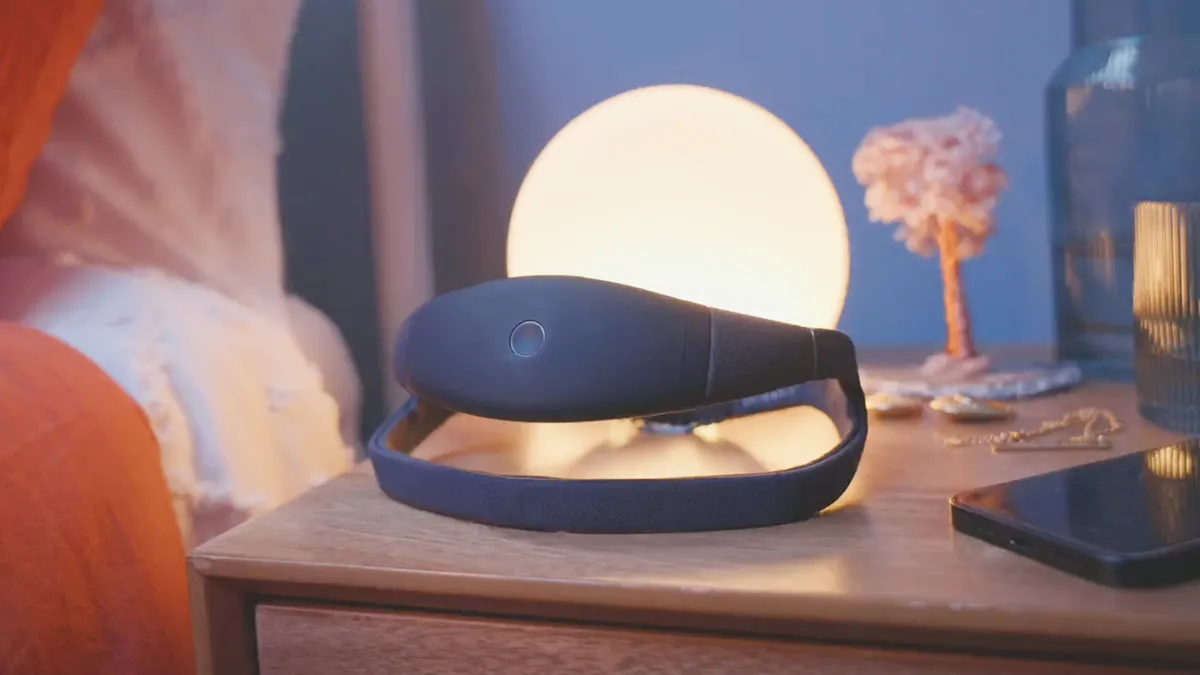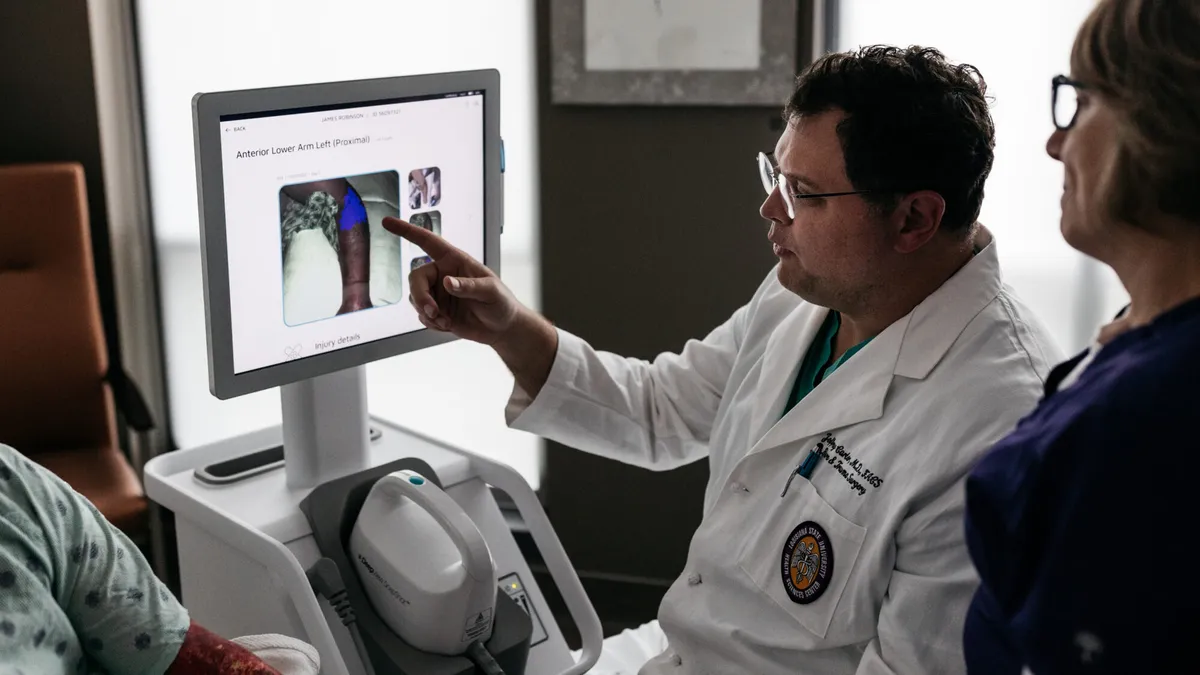Editor's note: This feature is the first in our new interview series profiling individuals whose medtech initiatives are getting noticed within the industry or beyond. Let us know who we should talk to next.
Silicon Valley diabetes tech startup Bigfoot Biomedical began as a homegrown project.
Years before becoming president and co-founder, Bryan Mazlish was working in his free time on an algorithm capable of streaming continuous glucose monitor data to a cloud and predicting blood sugar trends, and then connecting that CGM to an insulin pump, automating drug delivery based on an individual's needs at any given time. Mazlish's wife and son have Type 1 diabetes and became early adopters of the closed-loop system.
Looking to make this proof-of-concept artificial pancreas widely available, Mazlish joined with Jeffrey Brewer, then CEO of JDRF who was also raising a child with Type 1 diabetes, to launch in 2014 what is now called Bigfoot. The startup grabbed the equivalent of a breakthrough device designation from FDA roughly three years later.
With almost 130 employees today, the medtech hopes to file its first premarket application for its automated insulin injection system late this year or early next as part of a bundled device subscription service the company aims to launch in 2020. The insulin pump version of the product has yet to be put through a pivotal trial, but otherwise isn't far behind.
"I feel like it's way past time," Brewer said in an interview with MedTech Dive. "I never thought it would take this long."
Brewer spoke to MedTech Dive about the technologies he wishes his now-25-year-old son had access to years ago, what value-based care could look like for medtech companies and how data-driven device systems may be the future of digital health and chronic disease care.
The pitch
FDA has moved along a slew of diabetes tech in recent years. Medtronic's MiniMed 670G in 2016 was the first hybrid closed loop system to gain marketing authorization, and earlier this year, Tandem's interoperable insulin pump became the first device of its kind to win approval. Development of personalized closed loop systems is clearly on FDA's radar, with the agency granting breakthrough device status to projects from multiple companies in recent months.
But much of Bigfoot's pitch hinges on the belief that day-to-day, month-to-month diabetes management is still way too complicated.
"Today, medical devices that support insulin therapy, they're a bunch of different pieces," Brewer said, rattling off a list of components that can contribute to a complete lineup, like a blood glucose meter and its test strips, a continuous glucose monitor and its transmitter and sensors, or an insulin pump and its reservoirs.
"There might be different software apps that are able to talk to these devices — different ways of viewing the data for the person with diabetes and the clinician," Brewer added. "Usually you have about four or five different companies and up to 12 different prescriptions that cover all of the stuff that the person has to manage themselves."
The Bigfoot model seeks to sell all these pieces through a single, monthly, flat-rate subscription service: a quasi-one-stop shop for patients who take insulin. Brewer said he sees the company as an integrator, having invented versions of devices that didn't yet exist, partnered with products on the market already in good shape and acquired technologies to fill in the gaps.
The results, if cleared by the FDA, will be a proprietary insulin pump or injector-based system for adults (and children, if regulators allow) with Type 1 or Type 2 diabetes, designed to function with Abbott's FreeStyle Libre CGM and use insulin provided by Eli Lilly, though Bigfoot expects to add other insulin brands. A handful of additional business partnerships cover other niche pieces for which Bigfoot will serve as a vendor.
The systems prioritize continuous data capture and sharing between the CGM and the insulin delivery devices, Brewer said. The goal is to take guesswork out of insulin dosing for patients while also accumulating personalized information to help Bigfoot decide how many sensors or how much insulin, for example, to include in a patient's future monthly deliveries. The systems also effectively create a digital record of insulin intake that can be shared with a doctor.
"The feedback loops that gather all this data and see how it works every day are able to dial in your physiology in a very refined way that only gets better over time," Brewer said, adding he hopes that more people choosing to adopt Bigfoot's service will allow for broader population-level insights. "This is a data business of increasing returns."
In the case of the injector option, which Brewer said the company has decided to market as Bigfoot Unity, this data capture is achieved via Bigfoot's insulin pen cap technology. While several high-tech caps already on the market show a user how much time has elapsed since the last insulin infusion, Bigfoot's caps aim to record how much insulin has been dosed and control dosing based on blood sugar readings automatically communicated from the CGM.
Bigfoot's pump model, called Autonomy, is screenless, instead operated via an app. Though a smartphone won't be part of the standard workflow for Unity users, the system will have an app for tasks like checking orders and communicating with doctors.
Brewer said Unity will likely be approved as a Class II device and the company will release all clinical trial data closer to product launch, while the Class III-nature of insulin pump system Autonomy requires further clinical testing.
Potential selling points
Even more important to Bigfoot than its new technologies, perhaps, is how it will sell and price them: through a subscription service.
The high cost of going on insulin pump therapy, usually amortized by insurers over a number of years, "locks you in to a technology that quickly becomes out of date, if it wasn't already out of date," Brewer said. Conversely, the month-to-month nature of a subscription means patients could receive updated technologies more quickly.
While Bigfoot has yet to formally negotiate with insurers, Jefferies analysts recently estimated a subscription could be priced in the $400 per month range for all needed supplies, excluding insulin.
One selling point Bigfoot will make to payers is that more accurate insulin delivery could mean fewer expensive emergency room visits caused by dosing error-induced periods of dangerous hypo or hyperglycemia.
Brewer thinks the monthly model is "a much fairer way to sharing risk" with insurers and patients, and will also serve as a source of constant accountability.
"The person with diabetes or the payer could switch off your platform," he said. "That is a way to get skin in the game."
In some ways, Medtronic may have beaten Bigfoot to the punch. The medtech giant launched its Flex subscription program for diabetes customers in early January of this year, which allows for monthly payments to cover out-of-pocket costs for acquiring a Medtronic insulin pump. The roughly $50 per month cost, depending on a patient's insurance coverage, also includes a transmitter and an initial three-month supply of sensors, infusion sets and reservoirs. A Medtronic spokesperson said the company decided to launch the program to "address the upfront costs of going onto insulin pump therapy."
Medtronic had the edge of already having all its pieces on the market, but Bigfoot saw the program as validation that management of diabetes and other chronic diseases is headed in the direction of these bundled models.
With a potential product launch on the horizon, Bigfoot is looking to transition from a startup to a full-fledged service company, Brewer said. But in the background, the company will work on a version of its system for the millions of people with Type 2 diabetes who take once-a-day, long-acting insulin, aiming to reach an even broader swath of insulin users.
That expansion could eventually lift Bigfoot's total domestic market to $21 billion, rivaling "even the largest of Big Pharma opportunities," Jefferies analysts wrote earlier this year. Brewer would not comment on any IPO plans for the company, but did say Bigfoot is interested in expanding to Europe and China, for starters.
Brewer said Bigfoot raised about $100 million from Series A and B seed funding, from investors like JDRF, T1D Exchange and Abbott. The company also scooped up the assets of insulin pump maker Asante Solutions in 2015, worth $150 million before it folded, which Bigfoot acquired for just $5 million. Brewer called the deal "a real steal and fundamentally enabling of our path to the marketplace."
While Brewer is confident the data-driven bundled device model could be adapted by startups in therapeutic areas beyond diabetes, he acknowledged the barriers to entry within medtech remain immense. In Bigfoot's case, the company is still looking to raise another $100 million to support product launch.
"There's a reason these problems haven't been solved by startup companies previously in that you've got to raise a lot of money and you've got to actually build companies with a lot of different operational competencies," he said. "Usually that's skewed toward big, established incumbents."




















